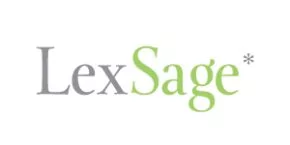Mistakes happen. While the majority of Canadian companies want to comply with Canada's export controls and economic sanctions laws, violations can occur. Often when there is an economic sanctions violation, there is also an export controls violation at the same time. Sometimes, there are export controls violations without an economic sanction violation.
There are three procedures to voluntarily disclose export controls and economic sanctions violations:
- Voluntary disclosure (export controls) to the Canada Border Services Agency ("CBSA") of any error in an export declaration;
- Voluntary disclosure (export controls) to the Export Controls Division/Export Controls Bureau of any violation under the Export and Import Permits Act and any regulations thereto; and
- Voluntary disclosure (economic sanctions) to Global Affairs & the Royal Canadian Mounted Police ("RCMP") of any violation of the United Nations Act and/or Special Economic Measures Act and any regulations thereto.
There are three voluntary disclosure procedures in Canada that are not connected or interconnected. There isn't a single voluntary disclosure form or format. There isn't a single window for making voluntary disclosures in Canada. Due to the disconnect, there can be multiple penalties and inconsistent approaches.
Further, none of the voluntary disclosure procedures are set out in a statute or a regulation. As a result, the procedures are imprecise and administrative in nature.
An exporter who fails to make a declaration of an export of controlled goods may make a voluntary disclosure of the failure. D-Memo D20-1-1 "Exporter Reporting" addresses customs export declaration requirements and voluntary disclosures. D-Memo D11-6-4 "Relief of Interest and/or Penalties Including Voluntary Disclosure" addresses the voluntary disclosure procedures. A voluntary disclosure to the CBSA can take 6 months or more. Further, because there are multiple voluntary disclosures required, the processes can be lengthy and expensive.
An exporter who fails to apply for and obtain an export permit prior to exporting controlled goods may make a voluntary disclosure of the failure. The Export Controls Handbook addresses the voluntary disclosure procedures. Section G.7 "Disclosures of Non-Compliance" and Subsection G.7.1 "Disclosure Procedures" provide brief information about the process for making a voluntary disclosure to the Export Controls Division of Global Affairs. A voluntary disclosure to the Export Controls Division can take 6 months or more.
There is no written guidance in Canada concerning the making of a voluntary disclosure of an economic sanctions violation. Global Affairs does not have resources to receive and process voluntary disclosures. When an exporter informs Global Affairs of an economic sanctions violation, they are referred to the RCMP rather than the Export Controls Division. The RCMP are Canada's federal police force and there is risk of reporting a violation to the RCMP. Also the RCMP must circle back and coordinate with Global Affairs, who are more knowledgeable on economic sanctions matters. Due to the lack of a defined process, a voluntary disclosure of an economic sanctions violation is complicated and takes more time.
If an exporter has made an error that involves both export controls and economic sanctions violations, it may be strategically advantageous to contact the CBSA and the Export Controls Division first and resolve the issues (and resulting punishment) before making the voluntary disclosure of the economic sanctions violation. The reason is that the CBSA and the Export Controls Division reviews can be of assistance in the economic sanctions voluntary disclosure process. The RCMP can use the help and guidance.
All disclosures (unless they result in criminal charges) are secret. There are no Consent Agreements, there is no formal Monitor/Oversight procedures, and there are no lists of barred Canadian entities.
The content of this article is intended to provide a general guide to the subject matter. Specialist advice should be sought about your specific circumstances.
We operate a free-to-view policy, asking only that you register in order to read all of our content. Please login or register to view the rest of this article.


